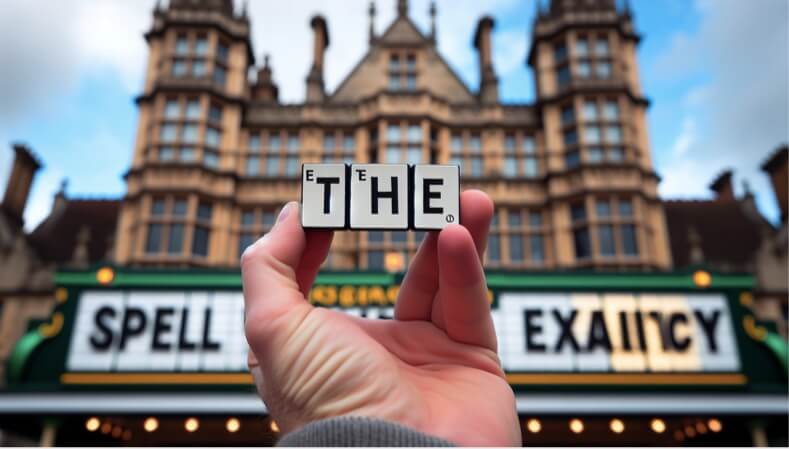- Home
- Determiners
- When to Use "The"
When to Use the Definite Article: "The"
Many learners of English struggle to know when to use the definite article "the" even though it is one of the most commonly used words in the English language.

Basic Grammar Rules for "The"
Articles come before nouns, with "The" being the definite article and "A" and "An" being indefinite articles.
The principle meaning of "The" when first taught to learners of English is that it is signalling that the noun it precedes refers to something previously mentioned. For instance:
- I just purchased a new pair of shoes and a jumper. The shoes are blue and the jumper is brown.
It's also used when it very clear what is being referred to:
- Open the door please.
- Turn on the television.
However, there are many other situations when we use the definite article, and we'll go through the main ones below.
Knowing When to Use the Definite Article
Previously Mentioned Nouns
As mentioned above, "The" comes before a noun that has been previously mentioned or introduced in the conversation.
- "He gave me a book. The book was interesting."
- "I've just seen a strange looking man. The man I mentioned is coming over!".
In the second sentences, "the book" and "the man" refer back to the book and man that were previously mentioned.
Specificity
Also referred to above, "The" is used before singular or plural nouns when the speaker and listener both understand which specific thing or things are being referred to.
- Please pass me the book on the table.
- I've got the tickets for the concert tonight.
In this sentence, "the book" refers to a particular book that is on the table, as opposed to any book and the "the tickets" are the specific ones for the concert that night.
Superlatives
We use the definite article before superlatives to indicate the highest or lowest degree of comparison.
- The tallest building in the city is impressive.
- He got the lowest score in the class.
In this sentence, "the tallest" indicates the building that is the highest among all the buildings in the city and "the lowest" is the worst score of the class.
Whole Groups or Categories
"The" is used before a singular noun to turn it into a noun that refers to whole groups or categories of people/things:
- The elderly need special care.
- The train is the best way to travel.
Here, "the elderly" refers to a whole group of people, namely older individuals and "The train" is referring to trains generally, not just one train.
With Family Surnames
We also use it before surnames to refer to married couples or whole families:
- The Smiths are coming round for dinner tonight.
- The Eriksons are a weird family, don't you think?
Unique Objects
Another time when to use the definite article is things that there is only one of:
- The moon is bright.
- The earth revolves around the sun.
- Boris Johnson used to be the Mayor of London
There is only one of all these things at one point in time.
Geographic Features
If you are naming rivers, oceans, mountain ranges, and other geographical features, then use "The".
- They sailed across the Pacific Ocean.
In this sentence, "the Pacific Ocean" specifies a particular body of water.
Compass Directions
The definite article "the" is used with compass directions to refer to specific regions, areas, or points on a map.
- We're going to visit the north of the country next summer.
- Their new house is situated to the south of the river.
- She moved to the east coast for her new job.
Ordinal Numbers
Finally, "The" is placed before ordinal numbers (e.g., first, second) to specify the position or order of something in a sequence.
- I live on the third floor.
- I will always remember the first time I drank alcohol.
Summing Up
In summary, "the" is used to specify or define nouns, indicate uniqueness or familiarity, and refer to specific groups or categories. Its usage is crucial for providing clarity and precision in communication.
Ensure you know when to use the definite article and your grammar will shine!
New! Comments
Any questions or comments about the grammar discussed on this page?
Post your comment here.


